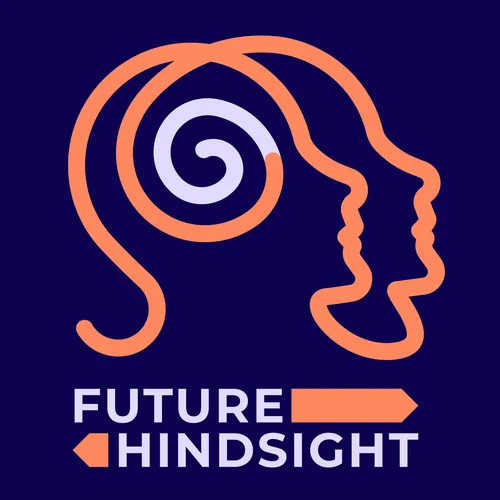
Future Hindsight
A weekly show that takes big ideas about civic life and democracy and turns them into action items for you.
- Update frequency
- every 7 days
- Average duration
- 36 minutes
- Episodes
- 380
- Years Active
- 2018 - 2025

A Renewable Future: Mark Z. Jacobson
Building nuclear power plants is extremely costly and time-consuming; projects are often plagued by cost overruns and construction delays. Between permitting, planning, a…

COVID-19 Special Edition
Stephen Pimpare is a nationally recognized expert on poverty and U.S. social policy. Hedebunks the idea that COVID is the great equalizer, and explains why immediate cash transfers are critical to mi…

A Nuclear Future: Joshua Goldstein
Nuclear energy offers large amounts of power, produces no carbon dioxide, uses a comparatively small amount of land, and runs around the clock. Although nuclear power produces hazardous w…

Criminalizing Ecocide: Jojo Mehta
The crime of ecocide is the "extensive loss, damage, or destruction of ecosystems such that their inhabitants can no longer enjoy life peacefully." Ecocide happens on a large scale; …

Climate Policy Failures: Leah Stokes
Dismantling the energy system is crucial to breaking the energy crisis. Implementing clean energy policies is the most effective way to change our current energy system an…

Climate Justice: Julian Brave NoiseCat
Many low-income communities bear the brunt of industrial pollution or the harshest consequences of climate change. In order to address global warming in a meaningful way, we must also…

Writing Climate Policy: Jerry Taylor
The climate crisis is a global collective problem that requires a collective global solution. Robust and bipartisan public policy must be at the center of any effort. Taylor argues that we…

The Actual Cost of Fast Fashion: Jussara Lee
Corporations only care about their bottom-line, so boycotting stores you don’t believe in does make a difference. Taking responsibility for your purchases is one of the most…

The Future of Food: Lenore Newman
We can create a sustainable food supply for future populations with technology and a change in diet. We cannot feed the world the way we feed North America because 40% of the …

A Call to Arms: Bill McKibben
Through non-violent social movements, we can demand meaningful change in the political and economic calculus for polluters. Climate strikes, extinction rebellions, and conc…

Towards a Sustainable Future: Katherine Richardson
The United Nations Sustainable Development Agenda for 2030 lists 17 goals designed to improve human well-being, while also managing the Earth’s resources for t…

The End of Welfare: Kathryn Edin (Rebroadcast)
Welfare ceased being guaranteed after reform in 1996. Although the safety net for the working class was strengthened through tax credits, the safety net for those who are jobless d…

Democracy and Freedom: Season Round Up
Many Americans are unsure of how their government works. Civic education is the manual for democracy, which Civics 101 offers in the form of a popular podcast. Over the last hundr…

Ending Urban Violence: Thomas Abt
Abt’s central thesis for solving violence in urban areas is fairly straightforward: focus on the violence—and not other factors—first. Exposure to violence may be the central …

The Meritocracy Trap: Daniel Markovits
Meritocracy gives the illusion that we are all equally competing at a level playing field. The reality is that the elite is able to purchase better education, which means th…

Bipartisan Civil Discourse: Michael Baranowski
The need for positive, bipartisan discourse is acute. In today’s politically charged environment, it's important to disagree in a constructive and civil way. The fi…

Protecting Free Speech: Suzanne Nossel
The First Amendment protects four types of freedom of expression: freedom of speech, belief, assembly, and the ability to petition the government for a redress of grievances. It s…

Practical Equality: Robert L. Tsai
Equality creates a framework for how we should treat others, and how we should expect to be treated by others. The institution of laws enforces the rules of equality within that fr…

Deliberative Democracy: Jane Suiter and David Farrell of the Irish Citizens’ Assembly
The Irish Citizens’ Assembly was formed in response to the severe social and economic crisis caused by the global financial meltdown of 2008. A group of political scientists, led by J…

Responsible Statecraft: Stephen Wertheim
Responsible Statecraft
Responsible statecraft should derive from serious consideration of the public interest, with robust public debate and a strong role for Congress. The Quincy Institute believes …